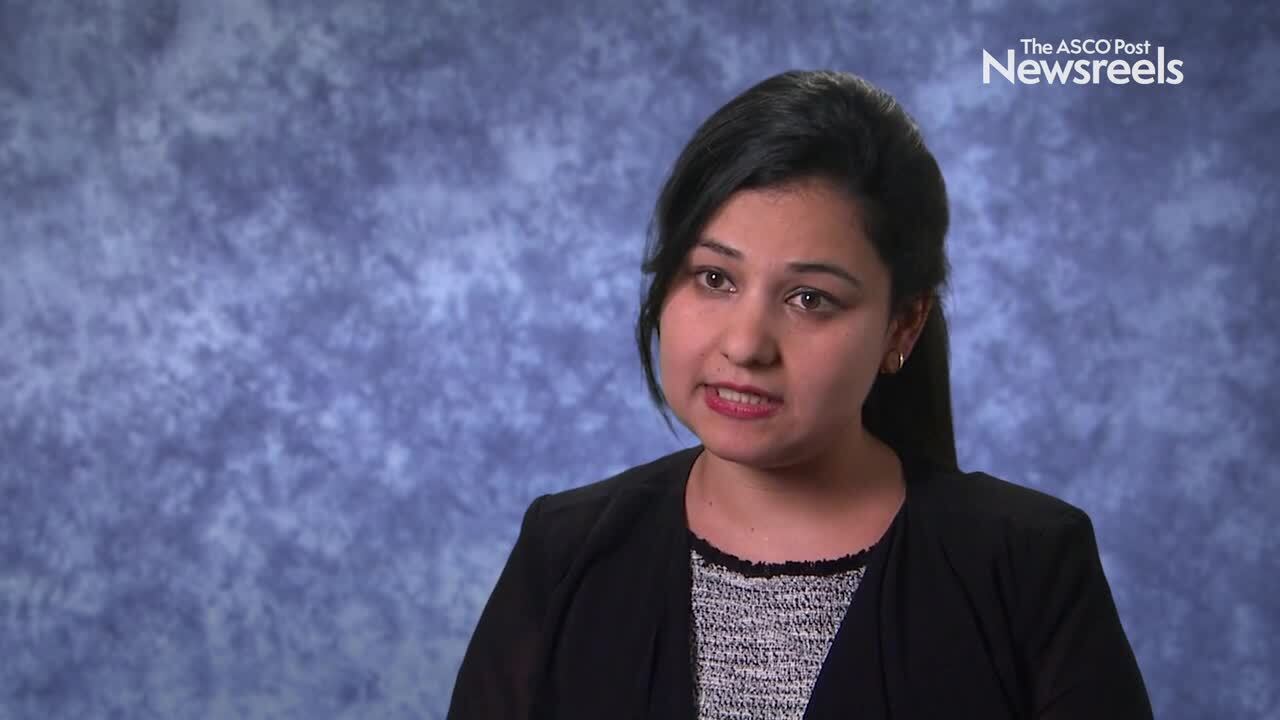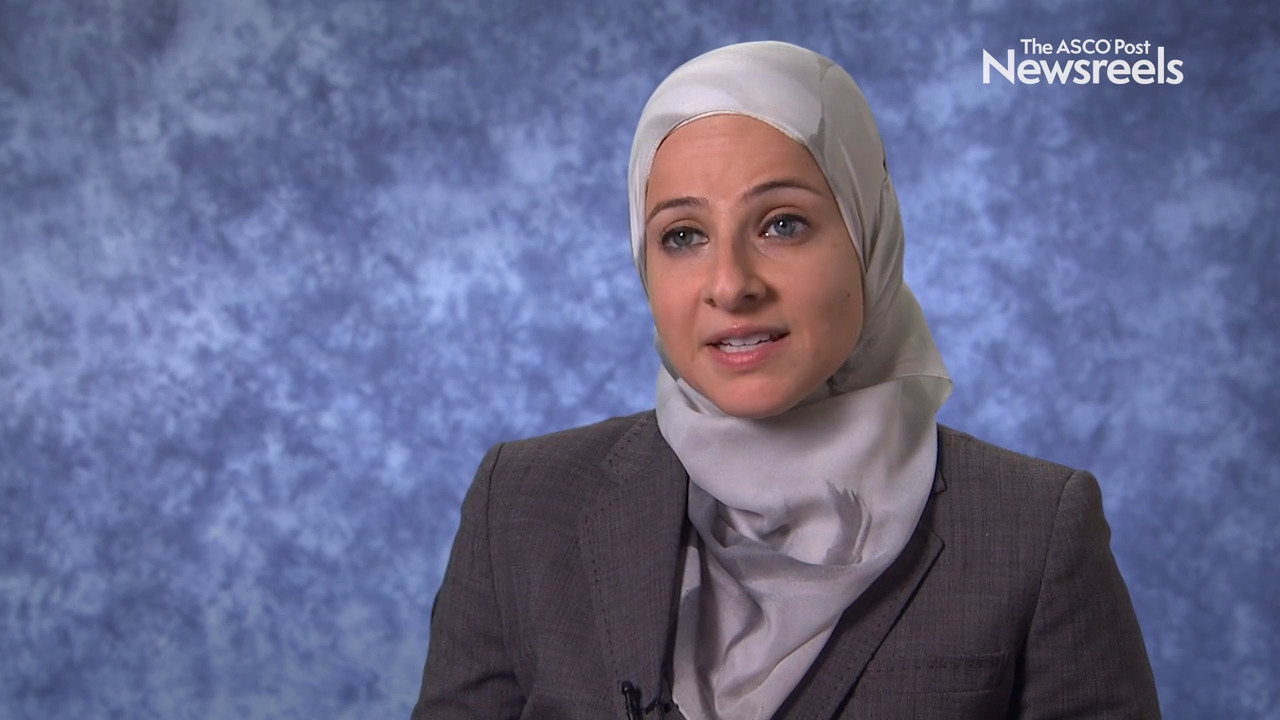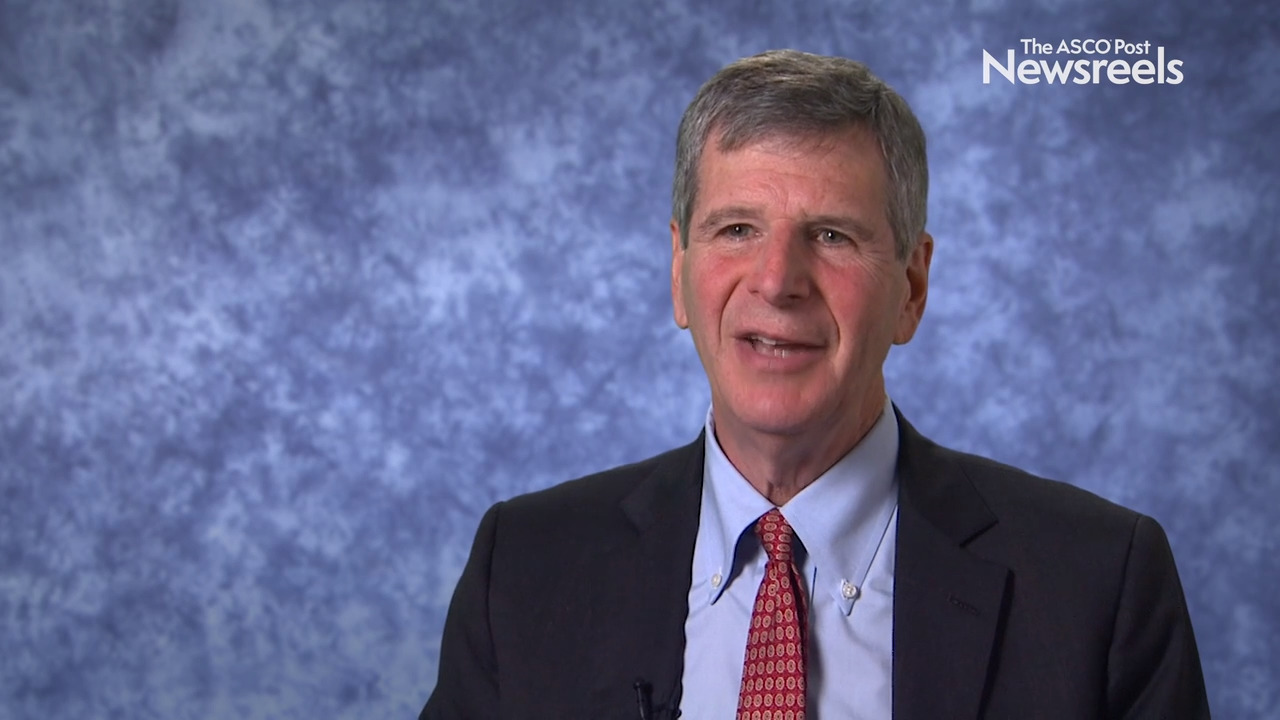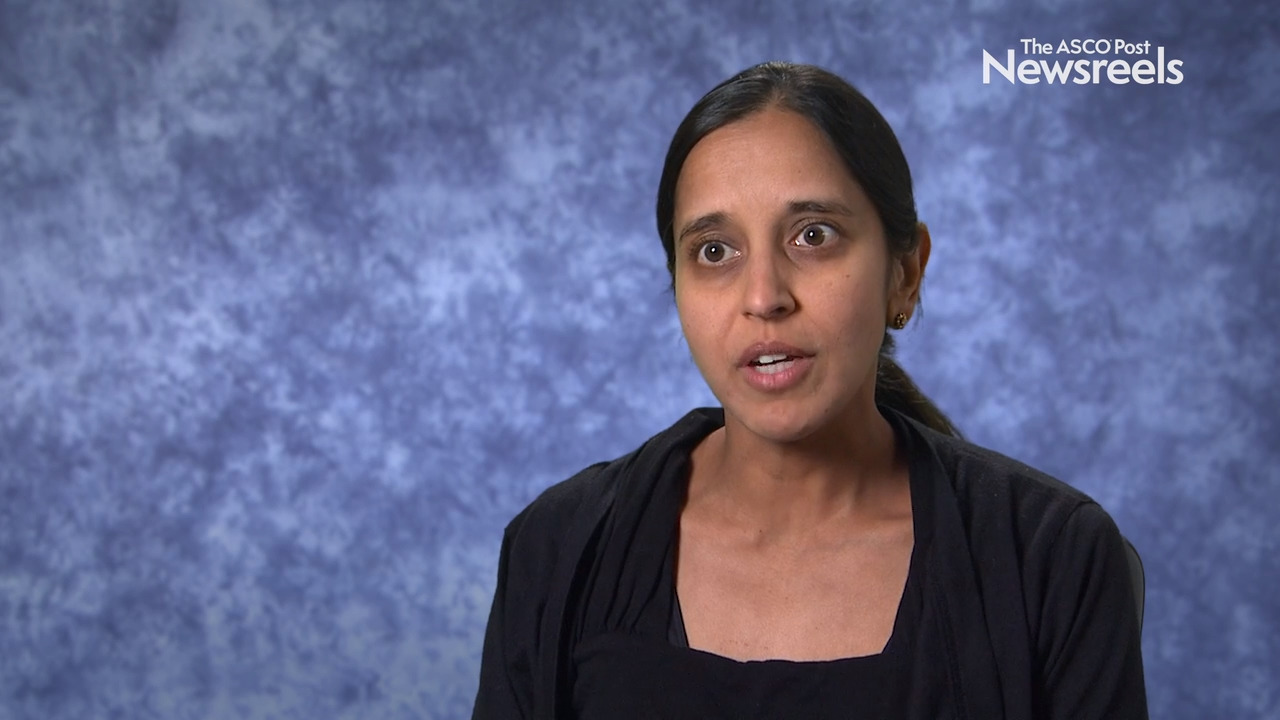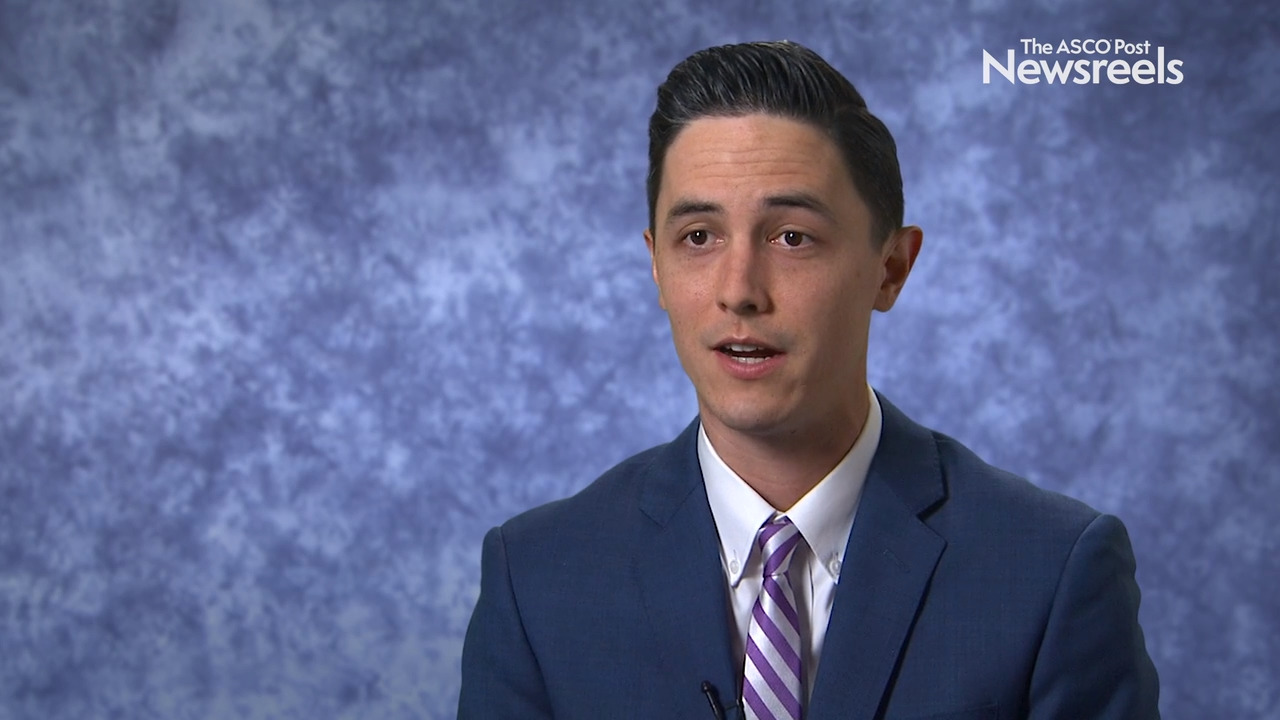Cary P. Gross, MD, on Creating and Implementing Clinical Pathways: Where is the Patient’s Voice?
2019 Quality Care Symposium
Cary P. Gross, MD, of Yale School of Medicine, discusses the challenges of implementing pathways and guiding patient decision-making on treatment.
Mallika Sharma, MPH, of Seattle Cancer Care Alliance, discusses her findings that, by doing away with the many prior authorization denials based on administrative errors, providers may offer higher-value care by eliminating unnecessary anxiety among patients, administrative burdens, and increased costs (Abstract 9).
Nadine Housri, MD, of the Yale School of Medicine, talks about a new paradigm in sharing knowledge from tumor board discussions at NCI-designated comprehensive cancer centers, with community oncologists on themednet.org. Currently, thoracic, breast, and GI cancers are included, with plans to expand the scope (Abstract 272).
Joseph O. Jacobson, MD, of Dana-Farber Cancer Institute, and this year’s recipient of the award for excellence in quality cancer care, discusses the need for quality improvement (QI) to encompass systems of care, the role of QI in preventing suffering, how poor quality affects patient safety, and the ways in which oncologists can learn from errors in other industries.
Manali I. Patel, MD, of Stanford Cancer Center, discusses enhancing value for patients with cancer treated by community practitioners at the end of life by also utilizing trained lay health workers in a novel intervention that reduced the use of acute care and emergency department visits while improving quality of life.
Ryan Huey, MD, of The University of Texas MD Anderson Cancer Center, discusses his findings that showed the large financial burden on lower-income patients enrolled in phase I trials (Abstract 8).
